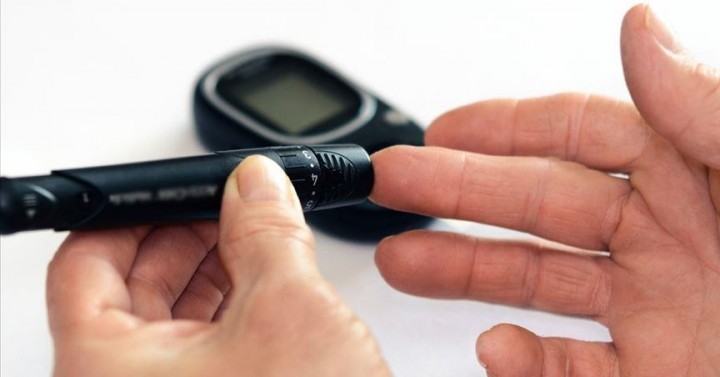Understanding the Diabetes Epidemic: The NHS’s Battle Against Type 2 Diabetes
Imagine a bustling London hospital, where medical staff rush to attend to patients battling fatigue and complications that could have been prevented. Each year, the National Health Service (NHS) spends a staggering £10.7 billion (approximately USD 14.5 billion) on identifying and treating diabetes, a chronic condition that often remains hidden until it wreaks havoc on lives and families. More than 900,000 adults are now enrolled in the NHS’s proactive Healthier You Program, a response to a growing epidemic that sees Type 2 diabetes as a leading cause of preventable complications including heart disease and even certain cancers.
The Urgency Behind the Numbers
Recent data highlights a record 166,360 adults in England who engaged with the Healthier You initiative last year. This program offers vital resources aimed at mitigating the risk of developing Type 2 diabetes through lifestyle changes. “The statistics are alarming all around. For every two people with diabetes, only one is aware of their condition,” notes Dr. Hannah Richards, a public health researcher at Manchester University. “We’re in a race against time to educate the public.”
Understanding Type 2 Diabetes
- Type 2 diabetes accounts for around 90% of all diabetes cases.
- It is primarily caused by lifestyle factors such as obesity and inactivity.
- The condition significantly increases the risk of heart disease, kidney failure, and certain cancers.
- It is also a leading cause of preventable sight loss among working-age adults.
Highlighting these risks, the NHS is utilizing the slogan “Prevention is better than treatment,” emphasizing the significance of tackling the root causes of Type 2 diabetes. A recent study by the UK Health Foundation reinforced this sentiment, stating that individuals who completed the Healthier You Program reduced their chances of developing Type 2 diabetes by 37%. Participants also reported significant mental and physical health improvements along with an average weight loss of 3.3 kg.
The Hidden Cost of Diabetes
Diabetes does not just affect individuals; its impacts ripple through families and communities. The NHS has cautioned that failing to address the surging rates of Type 2 diabetes may lead to unsustainable pressure on healthcare resources. “Not only is there a financial burden, but the emotional toll is often underestimated,” explains Dr. Samuel Akintola, a consultant endocrinologist. “Patients deal with a myriad of complications that can affect their quality of life and overall wellbeing.”
A National Initiative: Healthier You
The Healthier You Program, launched in 2016, is a flagship initiative of the NHS that aims to empower individuals to make life-altering changes. Participants receive tailored advice on diet, physical activity, and mental wellness, proving to be a comprehensive approach in combatting the condition. “The program is designed to promote long-term behavior change rather than short-term fixes. It is about creating sustainable habits,” states Dr. Heena Mirza, a behavioral psychologist and health advisor.
During Type 2 Diabetes Prevention Week, which runs from May 26 to June 1, health leaders encourage individuals to evaluate their risk factors. Education forms a crucial part of prevention, with a focus on improving public awareness about the dangers of sedentary lifestyles and unhealthy eating patterns.
Change Begins at Home
Engagement with the program has shown promising results, yet the road ahead is still daunting. With approximately 2 million people in England considered at high risk, a concerted effort is needed from healthcare providers, policymakers, and communities alike. The message is clear—everyone has a role in curbing this epidemic.
- Increase awareness of dietary habits: Educating the public about nutritious food choices can radically alter eating patterns.
- Promote physical activity: Communities can create inclusive spaces to make exercise accessible to all.
- Support mental health: Acknowledging the psychological components of lifestyle changes can enhance the effectiveness of programs like Healthier You.
As the NHS continues its efforts to combat Type 2 diabetes, it is not merely about medical treatment; it is about catalyzing a societal shift in how we view health and wellness. The real challenge remains—changing behaviors entrenched by years of lifestyle habits. But with statistics showing that intervention can significantly decrease risk, there is hope that this national initiative can turn the tide on a growing crisis.
The future lies in collaboration—between health services, communities, families, and individuals all committed to a healthier tomorrow. With continued vigilance, education, and support, the NHS can pave the way for a reduction in type 2 diabetes cases, fostering a culture where preventing disease is prioritized over treating it.
Source: www.pna.gov.ph


